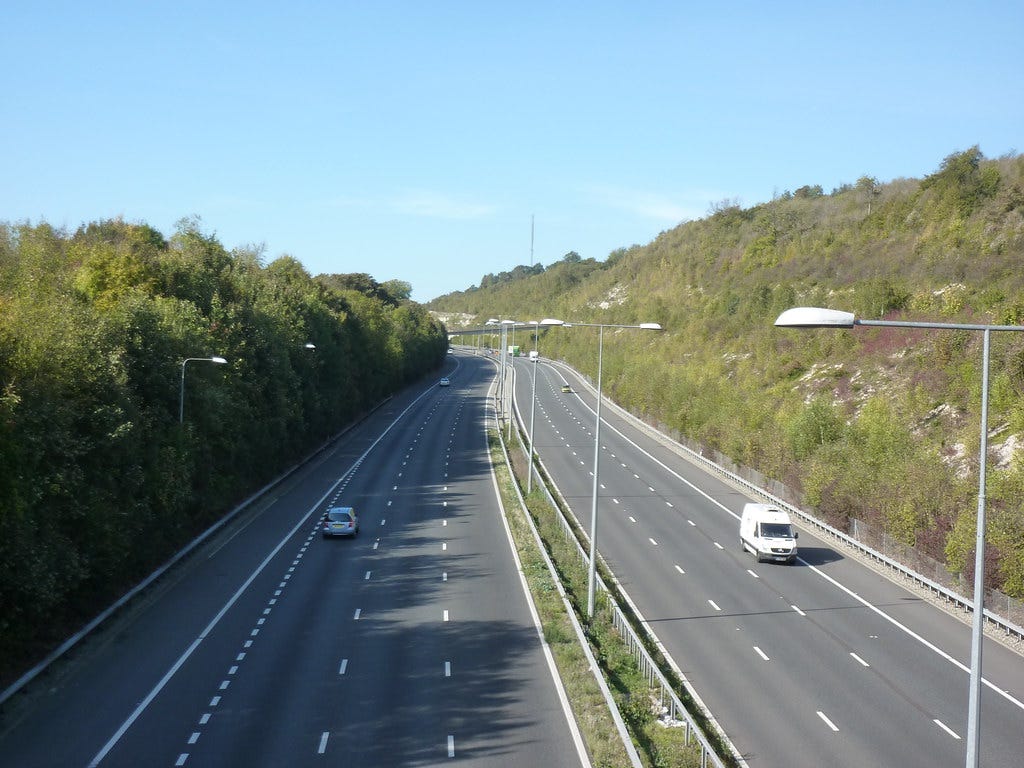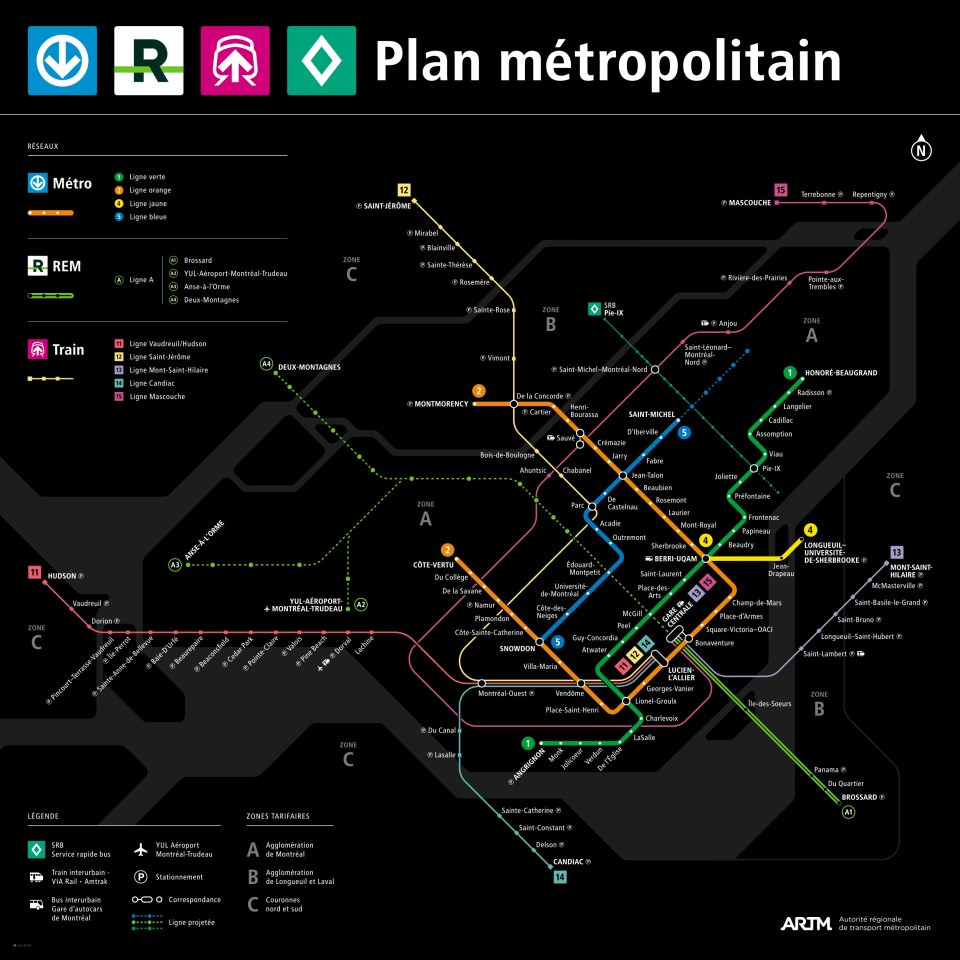Finally - MM#579
Good day my good friend.
Look, its time for truth here. There is nothing funny about a fire at sea. In fact, for the sailors on board a fire tearing either through the cargo or below deck is terrifying, and in the case of the Fremantle Highway, one sailor has been killed. But I couldn’t help but think that the fire on board a ship with cars on it while the world is on fire is somewhat ironic. Don’t ya think?
In case you wanted to see the latest position of the vessel (assuming it is still floating at the time of writing), Marine Traffic is your friend.
Mobility Camp is taking place on 26th September 2023 in Birmingham. It would be great to see you there. Get your tickets now.
If you like this newsletter, please share it with someone else who you think will love it. I will love you forever if you do. ☺️
James
💡 Someone gets it
You may have seen the press yesterday about a report by the House of Commons Transport Committee on Strategic Road Investment. Much has been made about the Committee’s recommendations that the government should focus on filling potholes and not building more roads. This is important, but there is much more to this report in terms of how National Highways - the body responsible for strategic roads in England - does its work and how it can be improved.

For instance, the committee recommends increasing investment in maintenance not to stave off climate change, but to better meet the needs of users as identified in surveys by Transport Focus. It also recommends removing large and complex projects not to meet carbon targets, but because they are subject to optimism bias (still not learned those lessons, it seems). Meanwhile, having a live dashboard of projects publicly available so people can find out what is going on and investors can be reassured is a good thing.
Many of these issues are issues we have known about for a long time. Optimism bias in particular is not new, and I daresay is more felt by political decision makers than professionals who carry the can. The interventions of the likes of Phil Goodwin and Greg Marsden on climate matters gave the committee a realisation that building roads and meeting climate goals are not feasible. They could have just asked Wales. But does this mean anything?
In the past, the Department for Transport usually publishes a response saying that they are wrong and all is fine. Which, as a public servant both as an officer and as an elected member, is frustrating and insulting. This should be used as an opportunity to engage on some critical issues and chart a way forward. Not just for more work, more reports, more soundbites, and then nothing. In the meantime, the Transport Committee report is a good one, and they should be commended for it.
What you can do: Immediately on the report, the only thing you can realistically do at this stage is message the Transport Committee and request that they get a meaningful response from the Department for Transport. And if the response is not meaningful, ask they chase until they get one.
For practitioners, it may make sense for you to review your capital programmes for how they align not just with your own climate goals, but in terms of the value for money of new roads compared to that of maintaining the existing infrastructure. Then recommend changes accordingly.
🚊 Gentrify
A difficult dilemma that we often face as transport planners is that even when what we are doing may be good, there may be bad outcomes from it. The term gentrification is something that is often thrown around in arguments over the future of a place, and with reference to specific transport interventions.
Its a really complicated relationship. Often based in historic (and still present) injustices that make discourse complicated for the unaware transport professional. Not helped by the fact that much research is the area is little better than rubbish methodologically. Recently, this research has started to focus on business indicators to get some sort of credibility - the logic being that certain types of businesses can be indicators of gentrification. Some of the early research is demonstrating the validity of models, but assumptions still need testing.
This is an area where people interested in transport should not look to the data for answers. But instead look to their own morals and principles for guidance. They need to understand why they are delivering certain strategies and schemes, talk to people about them, understand their hopes and fears. And use a bit of intuition and caring. Not all transport skills are technical.
What you can do: Read this bulletin by the Good Governance Institute on how to engage with hard to reach groups, and action it whenever you plan an engagement event. If in doubt, go for co-creation.
When thinking about monitoring and evaluating schemes, base it on a good quality logic map. Look for second-order effects, and especially impacts on vulnerable groups. Plan and put money aside for monitoring.
🎓 From academia
The clever clogs at our universities have published the following excellent research. Where you are unable to access the research, email the author - they may give you a copy of the research paper for free.
TL:DR - A thought piece that tries to get transport planning away from predict and provide.
Evaluation of Direct and Indirect Effects of Teleworking on Mobility: The Case of Paris
TL:DR - People make more trips when they are working from home.
TL:DR - Mosques are highly accessible locations in some parts of the world.
Risk mitigation in service industries: A research agenda on container shipping
TL:DR - Risk management and mitigation in shipping is complex. And Spherical Fuzzy Theory sounds very funny.
✊ Awesome people doing awesome things
A big shout out to Rob Bryher from climate charity Possible. Fighting the good fight in Bristol in support of low traffic neighbourhoods in the face of a coordinated and vicious anti-campaign. This is often a lonely fight, especially when opponents get personal in their attacks.
Keep it up Rob. And everyone support him!
Got someone doing something awesome in transport decarbonisation, transport justice, or transport safety who deserves a shout out? Let me know about them.
📼 On the (You)Tube
This video is from a little while ago now, but it is a great explainer as to why electric planes are getting more attention. And if flying is going to continue into the future (we can’t un-invent the plane after all), electric planes will be a part of it.
What you can do: If your nation or region subsidises air routes (e.g. to outlying islands), request that the next time they tender the service they make it a condition that electric planes are used. Or at least lower carbon fuels - even bio-fuel is better.
🖼️ Graphic Design

The excellent Transit Maps blog has reviewed this new map of transit services across Montreal. The blog is well worth a read for understanding good design standards, and factoring in issues such as accessibility. How well do you think this scores?
What you can do: I highly recommend viewing any of the Transit Maps blog posts that are tagged as tutorial. Not only do they introduce you to the basics of map design, but they show you how to make your own using basic software. There are 31 such blog posts in all to look through. Enjoy!
📚 Random things
These links are meant to make you think about the things that affect our world in transport, and not just think about transport itself. I hope that you enjoy them.
A funeral for fish and chips: why are Britain’s chippies disappearing? (The Guardian)
The World China Is Building (Noema)
The ‘Darting Children’ That Helped Japan Win Its War on Traffic Accidents (Atlas Obscura)
Oh my god, WD-40 is available in a Tide pen (The Verge)
✍️ Your Feedback Is Essential
I want to make the calls to actions better. To do this, I need your feedback. Just fill in the 3 question survey form by clicking on the below button to provide me with quick feedback, that I can put into action. Thank you so much.


